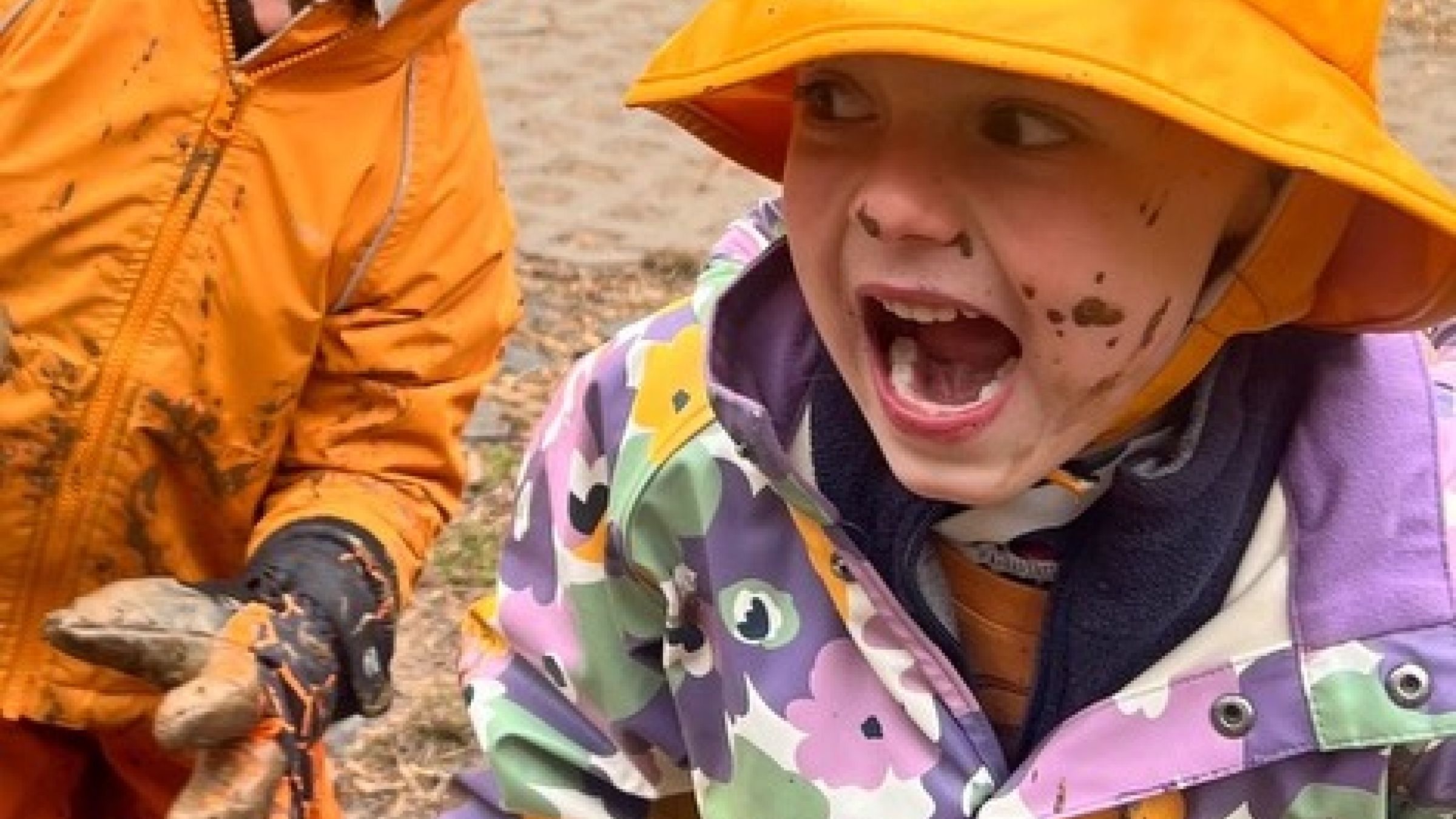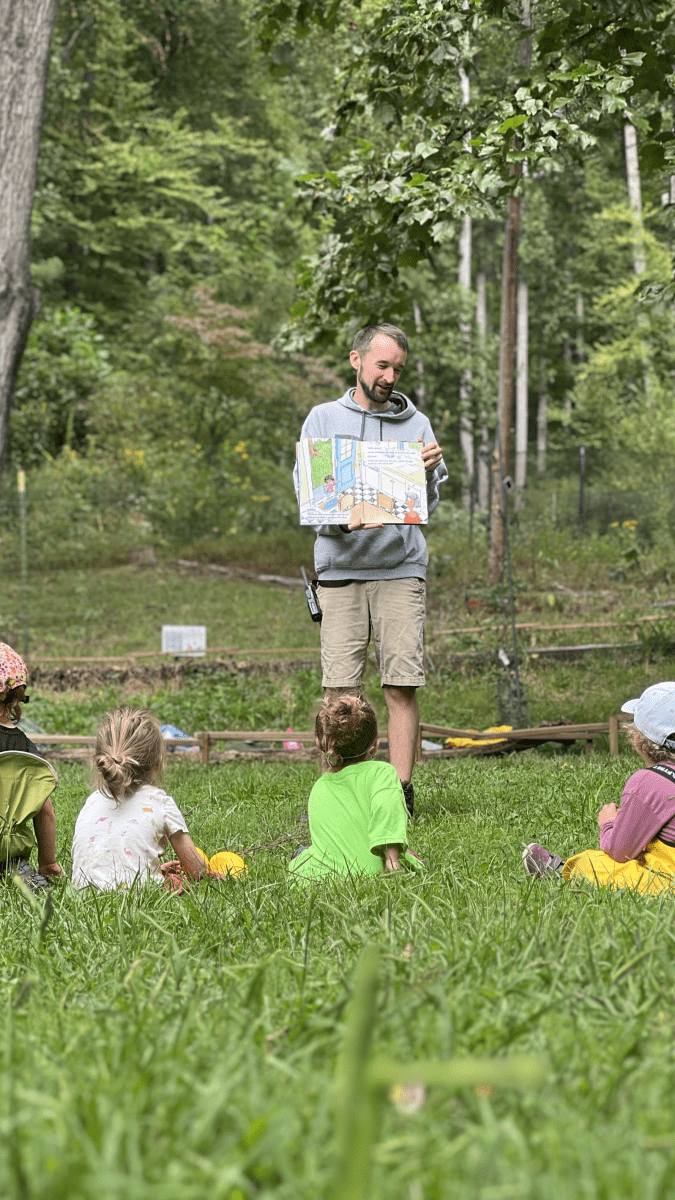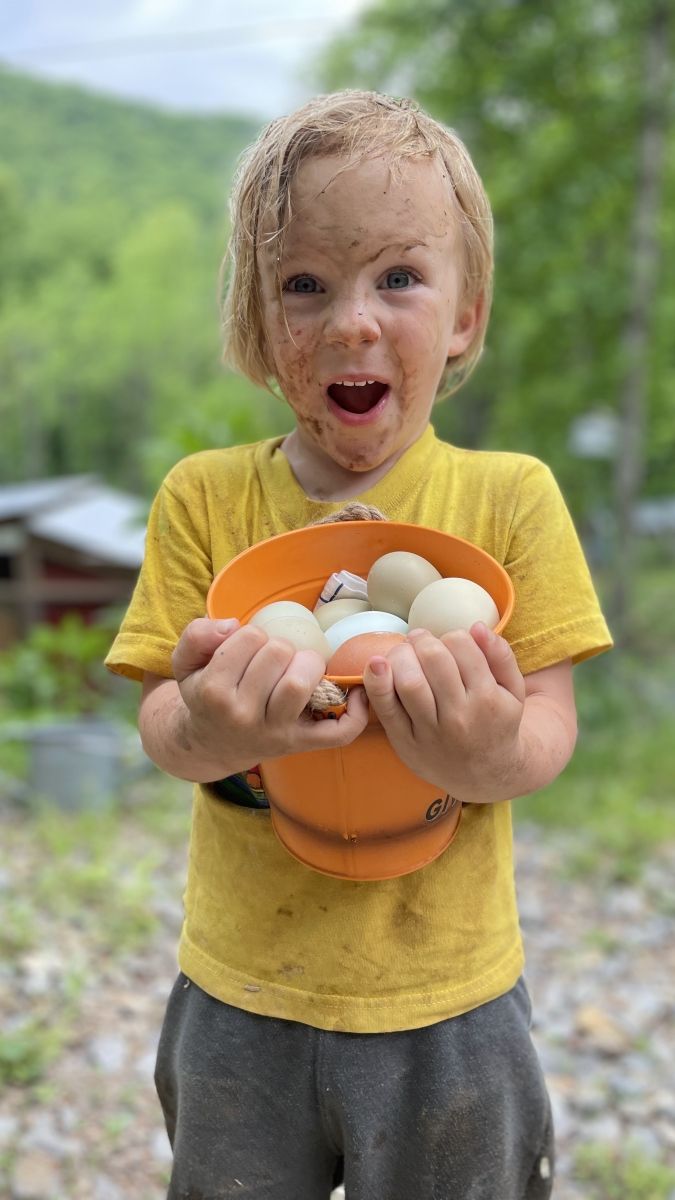
Asheville Farmstead School is located on a 25-acre campus just outside of Asheville, NC in the beautiful Blue Ridge Mountains. Operating since June of 2016, this 100% outdoor school serves children ages 2.5 to 7 years old. The Farmstead currently serves 50 students through their school-year day programs, and this summer they will run six weeks of summer day camps, which will serve 192 campers. The Farmstead is committed to play-based programming that follows the Cedarsong Way, which encourages learning from forest environments. The Farmstead uses Love and Logic training, as well as positive discipline as a foundation for social-emotional interactions with students.
Natural Start spoke with Asheville Farmstead School’s Administrative Assistant, Daniel Bascuñan-Wiley, to learn more.
Each of your programs hosts a range of different-aged children. What are some of the benefits of having multi-age classrooms in nature-based learning?
A main reason we host mixed-age classrooms and programs is that we want families to have a say in which program they think their child is ready for. This classroom dynamic also allows us to view and respond to the developmental needs of each child with much less regard for age. Multi-age classrooms allow for a rich social-emotional, play-based learning environment. Younger students can watch, learn, and join play initiated by older students, and older students can learn patience, use imagination, and experience the joy in including their younger peers’ ideas into play. The benefits of multi-age classrooms are vast!

Photo Credit: Asheville Farmstead School
Your program is accredited in the Cedarsong Way. Can you share what that accreditation signifies?
Cedarsong Way accreditation signifies an unwavering commitment to unstructured play time, child-led learning, inquiry-based teaching, and social-emotional learning that begins with meeting each child where they are. These elements of the accreditation inform the foundational framework of our programs. All of our staff go through Cedarsong Way’s online Foundations course, and our Founder and Executive Director is one of only four people in the world qualified to train others through the Cedarsong Way of Teaching training course.
Tell us about the incorporation of animal care and farm work in your holistic learning curriculum. What advice can you share with programs that might be interested in incorporating elements like gardening or caring for animals in their programs? How would you suggest they get started?

Photo Credit: Asheville Farmstead School
We love having animal care and farm work a part of our student’s learning environment. We work specifically with chickens, but all farm animals provide an opportunity to learn more about the food we eat and where it comes from. Farm animals also present us with a chance to care and have empathy for something apart from ourselves. Gardening similarly affords opportunities to learn where food and plants come from and the necessary work to produce them. It encourages students to try new foods because they invest their time and labor into growing, for example, a carrot, and then they naturally want to try the fruits of their labor. It is amazing to watch a student start from not eating the carrots packed in their lunchbox all year, to then harvesting a carrot out of the garden and taking a big bite! Our advice to anyone who wants to incorporate garden or farm work in their program is to start with the space and resources you have. A lot of meaningful learning can happen even in small garden containers and plots.